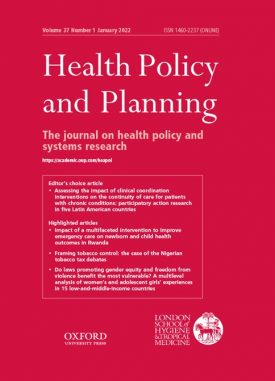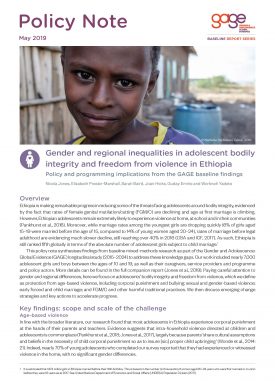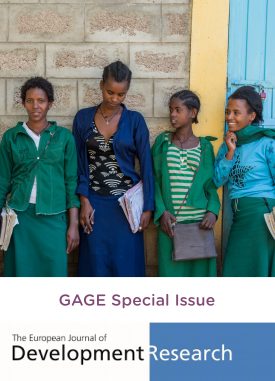Despite considerable progress over the past two decades in advancing the visibility of the rights of children and adolescents to bodily integrity and a life free from violence, the transition from childhood to adulthood remains fraught for girls and boys in low- and middle-income countries (LMICs). Emerging evidence suggests that adolescents often experience a range of discriminatory gendered and agerelated social norms and practices, which may negatively affect their wellbeing and longer-term development trajectories . The evidence base on adolescent experiences and perceptions of violence is thin and fragmented, and research on the age-based and gender-specific patterning of violence in different settings (household, school, community)—as well as the availability and appropriateness of formal and informal channels of response and redress—is limited in many contexts.
This chapter contributes to efforts to fill this evidence lacuna by exploring how adolescent girls and boys experience age-based and gender-based violence in two East African low-income countries: Ethiopia and Rwanda. It draws on qualitative research conducted in 2016 in two marginalised urban geographies, in Ethiopia (West Hararghe zone) and Rwanda (Musanze district), with approximately 200 adolescent girls and boys—covering those in early adolescence (10–12 years old), mid adolescence (13–15 years old) and older adolescence (16–19 years old)— as well as their peers and caregivers. The data is part of the multi-country Gender and Adolescence: Global Evidence (GAGE) longitudinal policy research programme (2015–2024) funded by the UK Department for International Development (DFID).
Suggested citation
Jones, N., Umutoni, M.F., Tefera, B., Coast, E., Workneh, Y., Isimbi, R., Emirie, G., Tilahu, K. (2019) ‘Disentangling urban adolescents’ vulnerability to age- and gender-based violence through a capability lens in Ethiopia and Rwanda’ in Roelen, K., Morgan, R. and Tafere, Y. (eds.) Putting Children First: New Frontiers in the Fight Against Child Poverty in Africa, CROP International Poverty Studies 281. (https://gripinequality.


